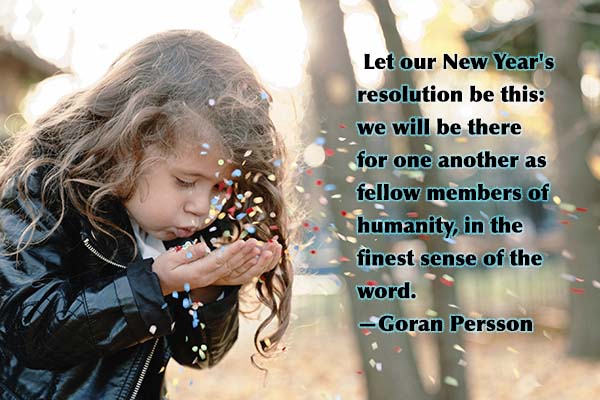
When many of us enroll our children in a Montessori school, we are asked to share our goals for our child’s future. Many read something like this, “I want my child to be a happy, self-supporting, life-long learner.” Although the word may not often be used in writing these goals, what is really being hoped for is well-being. According to Dictionary. com, well-being is, “A good or satisfactory condition of existence; a state characterized by health, happiness, and prosperity.”
A recent study, “An Association Between Montessori Education in Childhood and Adult Well- Being”, concludes that at least two years of good quality Montessori education increases adult wellbeing (Lillard AS, Meyer MJ, Vasc D, and Fukuda E, 2021).
The authors focused on four factors: general well-being; engagement; social trust; and self-confidence. Attendance at a Montessori school seems to have a ripple effect for many former Montessori students, as they found that “the more years one attended Montessori, the higher one’s well-being as an adult.”
The authors felt that three features of Montessori education would affect general well-being are self-determination, meaningful activities, and social stability.
Choice of Work: Choosing their own work, the ability to opt-out of, or delay, planned lessons, and limited performance evaluations encourage students to oversee their own education, to be self-determined, to decide for themselves. Adults who feel self-determination are more likely to seek challenges and be engaged in their chosen activity. As adults, we may describe this as having balance, having our dream job, or work that really means something. In the Montessori classroom, we frequently see children choose work that offers some challenge for them, whether that is carrying a tray with a bowl of water doing long division with the racks and tubes, or writing poetry. Students will often push themselves to an area just beyond their comfort level when they are ready for that growth and are welcome to make that move in their own time.
Meaningful Activities in the Montessori Classroom: Folding a cloth leads to folding classroom laundry; a group outing requires adding and dividing to figure out the cost; cutting fruits and vegetables is a part of fixing snack; and all these academic and life skills are applied within the classroom. As students grow, they may do research work that is personally meaningful to them and apply this to the information the class is learning together. In fact, in an earlier study, Montessori middle school students reported feeling more engaged than the control group (Lewis AD, Huebner ES, Malone PS, and Valois RF, 2011). As adults, we want to feel engaged in our family, job, and community, and part of the way we feel this engagement is through meaningful activities and connections. Meaningful activities can be linked to general well-being and engagement throughout life.
The Three-Year Class Cycle: Staying with the same teacher and having a limited change of students over a three-year cycle provides social stability and encourages students to collaborate with classmates. Many studies have shown that staying with the same teacher and some of the same classmates supports positive relationships, self-confidence, and academic growth. Managing friendships, different work styles, and opinions is an important part of any Montessori classroom and is done with understanding and guidance. Developing grace and courtesy skills, beyond manners to acceptance and understanding, can strengthen relationships and a sense of community inside the classroom and out. As adults, these social skills help us in our family, community, and our job. We don’t need to make our best friends at work (or even in our local community), but it is more enjoyable to have friendly relationships, and being accepting of different personalities helps in all relationships. Developing a sense of community, friendship, and a sense of social stability has been shown to lead to a sense of well-being.
Montessori classrooms offer free choice, which leads to self-determination, meaningful activities which encourage engagement, and the social stability of multi-year classrooms which leads to social trust. The general goal of a happy, self-supporting, lifelong learner, or an adult with a sense of well-being, can be started by attending a Montessori school. The median attendance of survey respondents was eight years in the recent Lillard study, and a longer attendance was correlated to a higher level of well-being. It has been said that the longer a child attends a Montessori program, the more people are positively affected over that person’s lifetime. Possibly that is true because, as this study demonstrated, attendance in a Montessori program positively affects adult well-being.
REFERENCES
Lewis, A. D., Huebner, E. S., Malone, P. S., and Valois, R. F. (2011). Life satisfaction and student engagement in adolescents. J. Youth Adolescense. 40, 249–262. doi: 10.1007/ s10964-010-9517-6
Lillard AS, Meyer MJ, Vasc D and Fukunda E (2021). An association between Montessori education in childhood and adult wellbeing. Frontiers in Psychology. 12:721943. Doi: 10.3389/fpsyg.2021.721943
Cheryl Allen was a classroom Montessori guide for 18 years and is now Director of Parent Education with the Montessori Family Alliance. As a child, Cheryl attended a Montessori school from age 2 through the 3rd grade. She earned her BA in History from Georgetown University and her Master’s in Teaching from Simmons College in Boston. Cheryl is an AMS-certified Early Childhood and Elementary Montessori teacher, holds IMC certification in advanced elementary Montessori education, and is currently pursuing a Topics of Human Behavior Graduate Certificate from Harvard university.






